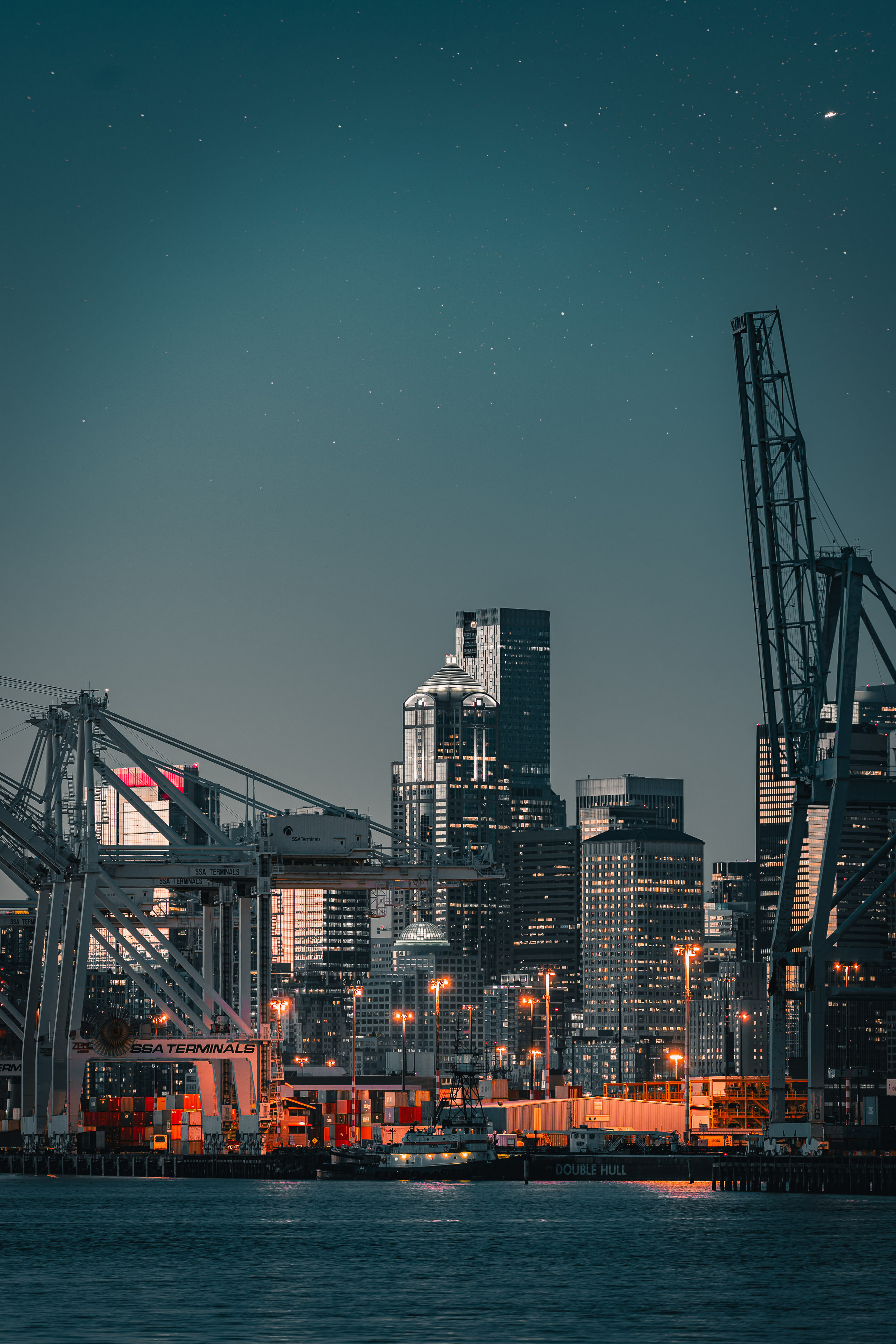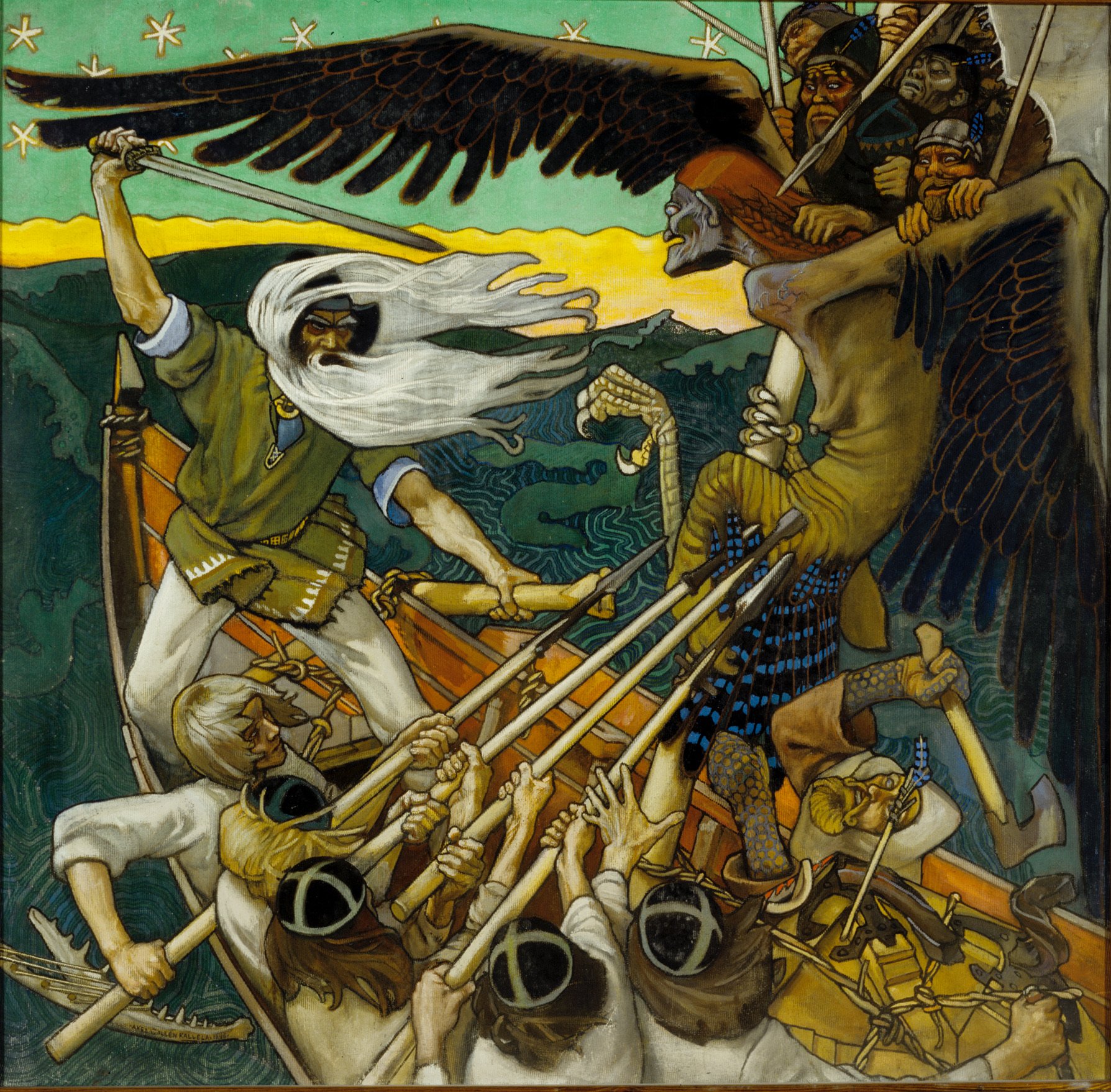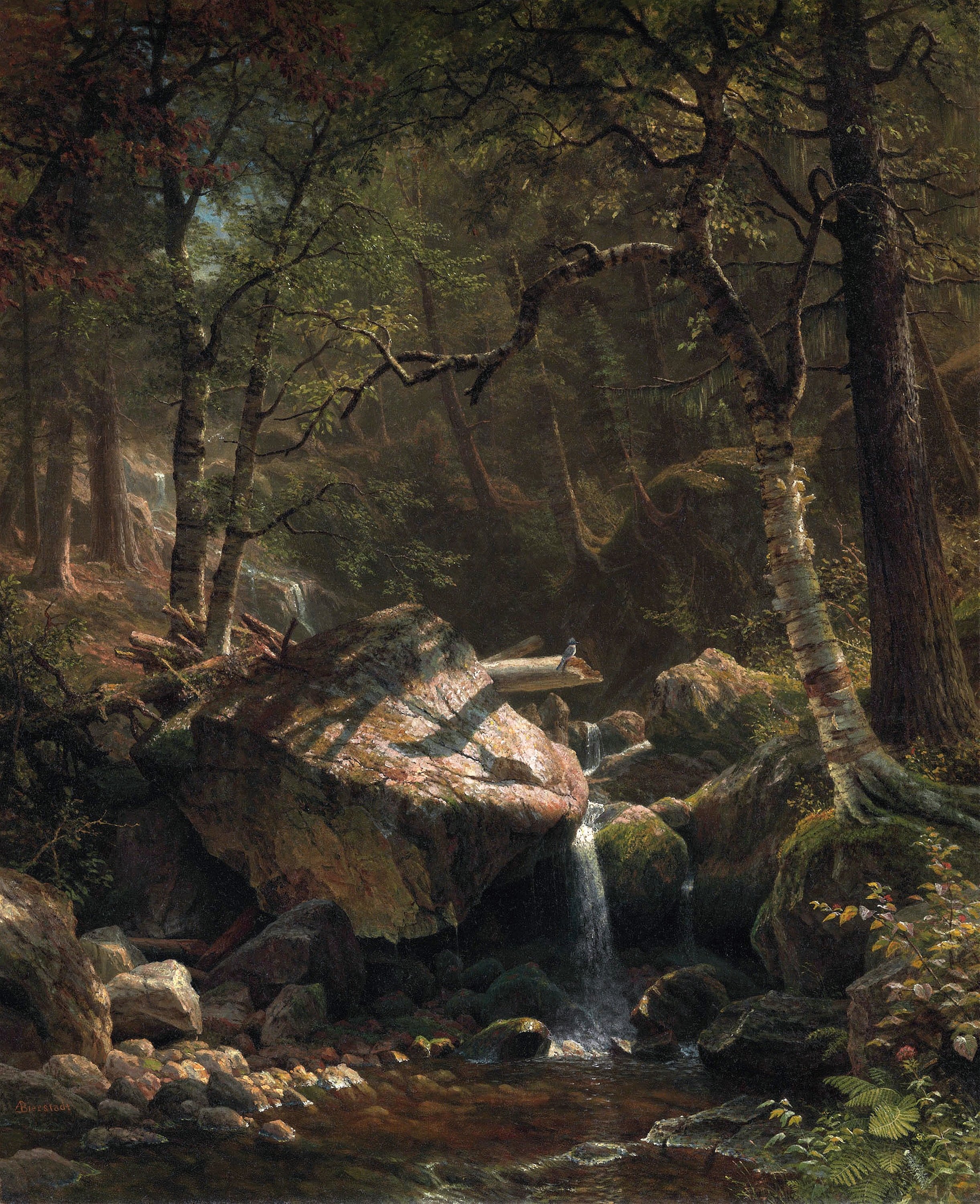Baptized by the Undertow

Baptized by the Undertow
Rick Jebb
I remember the freedom of paddling beneath the blue dome, staring out across the endless water and forest. My first session at the Canadian canoeing camp began in the summer of 1967. It didn’t take long to acclimate. By my second trip, I was filled with a great optimism that had come as my senses filled with a growing wonder for the endless beauty of the Northwoods.
It took us two days to get to the coveted campsite at the base of the waterfalls. Now, at least for a few days, the paddling was over, so we swam, fished and feasted on pan-fried walleye fillets, and blueberry pies cooked to perfection from heat that radiated from our campfire to a reflector oven.
I can’t remember who had the idea first, but we all agreed to try something different—so while the counselors relaxed on the granite expanse of our campsite, we paddled empty canoes out to catch the current of the rapids at the bottom of the waterfall. First, we paddled along the shoreline at the right side of the falls, then we were pulled into eddies that flowed upstream towards the terminal rapids where the water plunged from Lake Chatterton to meet Lake Russell near the heart of the Quetico Provincial Park. And just at the point where the surge funneled over the brink into the level of the lake, we would lean downstream, turn to the left and penetrate the fast water that exploded off the bottom to form the swift white-horses we rode gleefully out into the bay.
It was a total blast! Each ride had been exhilarating—until that final ride. We must have gotten too close to the suck-hole, which instantly judo-flipped our canoe spilling us into the churn of turbulence at the base of the falls. And before I knew it, I was trapped under the waves inside a powerful circulating current. In a panic, frantically trying to swim to the surface, only to be pulled and then pushed down again each time I struggled to get free, unable to breathe. But no matter how hard I fought my way back to the surface, down I went, again and again.
Years later I would learn, that in the parlance of whitewater paddlers, the thing I had been trapped inside was known simply as a hydraulic, and these were especially fatal when you tried to fight your way to the surface. A fast current in this configuration was like a rolling barrel trapped at the base of the falls, and if you tried to get to the surface its circulation dragged you back down, sapping all your strength until you drowned.
Surprisingly, the recommended way to escape the current’s grip was to swim down toward the bottom, where, if you were fortunate, you would be swept along by the current flowing away from the hole which would then lift you to the surface.
This was my third summer of camp, the first in Canada, but I had had no prior experience being trapped in a hole of falling water, a vortex where the force created a deadly horizontal whirlpool. I just wanted to get free from the current, and back to the surface; back to Owakonze Island where the red barge signified the beginning of my journey home.
My perfect place in the woods had now become a dark labyrinth of currents that twisted and turned with no way out. Now, in my agitated tomb, suspended in time, surrounded by billions of unbreathable bubbles, I tumbled in slow motion toward the next world. My strength diminished with each passing second. Then the memories began, flashing against the eight-millimetre screen of my panicked brain.
*
I’m six, my mother peddles the red toy tractor that pulls my little brothers and me in a wagon hitched behind, everybody smiling and laughing. Next, I feel myself running in the thick Bermuda grass at the courtyard of Jamaica Square, then down the wooden stairs to the beach where I stand in awe as I watch massive translucent breakers roll in ahead of the hurricane. Now I’m safe on the pier—fishing with my father—just him and me on that perfect day in September.
Then, as if by some trick of time, my family is transported to Illinois, but my father’s been left behind. And as I spin weightless towards my certain death, I hear the laughter of that second winter in Hinsdale, triggered by the aroma of pine from our Christmas tree. My mother and father drift in like spirits; just like that we are all together again as a family; then we’re not.
“I’m not ready to die” I pray. When time stops, my limp body is inside an icy river, wrapped around an invisible cylinder that turns with the speed of a glacier as I am pulled down for the last time. There is nothing left but to surrender. It isn’t even a conscious decision—but in my acquiescence, somehow the kick-out-current that flows along the bottom takes hold, and pulls me from the grip of the circulation. And when it does, I’m pushed immediately downstream where the main current bounces off the bottom in its wider arc, and carries me up to ride those gorgeous white-horses again.
I break the surface bobbing, coughing and gasping—the air had never been sweeter. With barely any remaining strength, I swim towards shore, towards my friends who still cling to our swamped canoe, treading water, pushing it back to the campsite. Only minutes behind them I climb onto the granite; into a hollowness a million miles from the people I love. It hits like a heavy weight—that homesick feeling of indescribable loneliness—I had almost died. Now, as I look around the shore, nobody even seems to notice. The unconcerned, unconscious minglers on the sun drenched bank, like Eloi, those human cattle from H.G. Wells’ Time Machine.
*
We broke camp the next day. The journey back to Owakonze for me had been a somber one. Even the delight of the woods had lost its salt. At the ranger station I remember the call to my mom back in Illinois, but there had been no answer. Fortunately I had been able to reach my father in Florida. “I really need to come home, I almost drowned,” I said.
He listened, then silence, then he told me he loved me, and “if you can find the courage to stay for the next five weeks,” he predicted, “you’ll get over being homesick.”
“I’m not sure,” I said.
“Whatever you decide, I’ll be proud of you.”
I never regretted the decision to stay.
*
In the years that followed that first summer in Canada, my appreciation for nature had come full circle. My memories of the woods were strong, woven into my imagination and infused with the recollection of the times we traveled by canoe like the first people who found what they needed before the European fur traders, and the Catholic priests.
The memories came to be burnished with a greater understanding of what nature had meant to me, and to so many others, when we traveled into the forest with the knowledge of science, history and modern technology. The memories came with the weight of modern religion, its history and its dogma, but in the wilderness these burdens were lifted.
Transforming moments carved into young bones and brought life to patterns laid across synapse junctions as I lived and relived the relief of having crossed over challenging portages, transferring our burdens back into canoes then shoving off onto a new lake—the prows of our boats pointed towards the mouth of some bay, the mist of pine and earth carried on the breeze that soon gave way to the smell of moisture and algae as our paddles carved into the surface.
I had been reborn that day when I was released from the water. I had been reborn as I glided upon its surface as a child.
*
Each winter I would impatiently wait for summer—to be back in the forest, to be transformed again by those times when we worked so hard that water became a magic potion that refreshed us like nothing had before, and the mere taste of rye crisp, peanut butter and honey became Turkish Delight. This was the destination where joy was entangled with vulnerability in the presence of beauty and danger; and when I learned these things could not exist without each other, I understood life’s true nature in nature’s divine cruelty cloaked by some amazing grace.
Camp had not been as revelatory or compelling for my brothers then, but for me, the wisdom of the woods was irrefutable, like a song I heard on the wind, and one that called up from the depths. We would paddle swift alongside the bottoms of cliffs, then drift and look up to see red-ochre pictographs, the art of the shamans that rendered the story of creation. I believed I saw the story of salvation painted on the rocks of Lac La Croix, Cashe Bay, and Lake of the Woods—the painted rocks depicting myths and legends of the Ojibway, their creation story, and their rescue from darkness. Had they seen Jesus?
The woods for me had been exotic and dreamlike: a living vision beneath an endless sky surrounded by blue water and shining trees. It was as if I was allowed to look upon the face of God. In the summer world when we floated over the blue mirror, swam in perfect waterfalls that pounded our aching shoulders, and paddled with the sun on our faces, hard into the wind only to be pushed back by white caps that rolled toward us one after another. The truth was all around.
This place was sacred to me; it could not have been otherwise—the handiwork of God I had often thought. To say that this water world was the creation of a personal God didn’t entirely make sense—but to say it wasn’t seemed even crazier still. And I remembered those days under high vapour trails that dispersed in the wind—harbingers of the memories that would feed my soul again long after their transforming power retreated, after I had returned to civilization; after my stepfather had died so young.
*
There were dangerous waterfalls, and some had claimed the lives of the bold and unprepared. Death and life were so close in this place, and that was one of its secret joys. Once, beside a substantial waterfall, from the top of the portage about fifteen to twenty feet high, we watched helplessly as the wind pushed a canoe loaded with pale passengers and canvas packs into the grip of the current, onto the brink of disaster. Plaid shirts flapping softly in the wind, faces covered in silent terror, and then panic struck just as the water swept them over the edge. Everything and everyone tumbling through a gauntlet of jagged boulders into the foaming water. In the end they found mercy—spit out by the current, wet, embarrassed, and remarkably unscathed but for some scrapes and bruises, to be healed by the woods.
Years later I was privileged to pursue an education along the lines of things that interested me: natural resources, geology and ecological systems, and I remained fortunate to be able to return to the wilds of the northern woods and the rivers and trails of the Appalachian mountains, where I stored the sustenance of the memories that I could draw from.
Christian de Castro
Memories of those experiences that had shaped who I was—and often directed me towards who I would become—were melded into my brain. They came when I remembered how the wedge of the bow cut the blue glass, and how with each stroke we gained speed that carried us beyond the turbidity of the shore, where we drank from the lakes that reflected the sky. Days we paddled to the edge of protected bays that opened into larger lakes like Lac des Mile Lacs, Pickerel, and Lac La Croix, when the wind pushed the water into small waves with chiseled faces that bounced sunbeams back in our direction.
How many times had I bobbed in place, looking down at my map, then across the sparkling water, eyeing a distant point?—about two miles away, forty years (or forty minutes) if we paddled strong with the wind in our face. I had done this a thousand times and could feel the lean of the canoe to its tipping point. Sometimes I stood and paddled into a narrows to scout smaller rapids ahead. The canoe had become a perfect boat—the Northwoods had become the perfect residence, this place where I became a different person than I was back home.
*
When the storms of life came—and they came, I would turn to the memories. When the darkness came for me, I would summon those places where I still lived in that glorious past, where my childlike faith was once effortless, buoyed by the joy of my spirit. At first, hope came from knowing I could physically return to those places—later it came purely from the recollections themselves that were somehow entwined with my faith, inside this mysterious fusion of feelings and knowledge that would release me from my anxiety and pain. Still, something was missing.
I had found the freedom of the woods as a child when my faith was natural. But as I grew in my self-reliance, I became lost. I had prayed for direction time and again, when I began to seek my path for life, in the confusion trying to figure out how to make a living while not forsaking peace and love—and that’s when the answers came. They came when I pounded on the door that led to a deeper freedom, willing to surrender my life, crying out in desperation and hope.
Fifteen years after I had faced death at the base of the falls, I was now drowning in fear, grief and shame—I had tried to escape. When freedom came, it came in my confession of faith; it came when I chose to look beyond myself. Freedom came when I rose from the water to breathe in the spirit of new life. Baptized on that cloudy Sunday when I broke the surface of Lake Michigan at Chicago’s Oak Street Beach; when the sun broke through the clouds, when memories of Canada flooded my mind.
Beachgoers came and gathered, curious and interested to see the christening of my willing surrender. And in exchange for the hopelessness of a life focused on me, I received the freedom Jesus had proclaimed in a sermon on the slopes of the Korazim Plateau, long ago, about new life when eyes and ears and will all turn to Heaven. The door had been opened because I had asked, and searched, and knocked. It opened because He died.
I remember paddling out from my childhood, from the Canadian wilderness into the world, stronger and more prepared—death could wait. I remember rising out of Lake Michigan “…death, burial, resurrection”—receiving power from on high. Born in the death of my will. Thy will be done.
Rick Jebb
Writer & Real Estate Broker
Photography by Joey Samante





